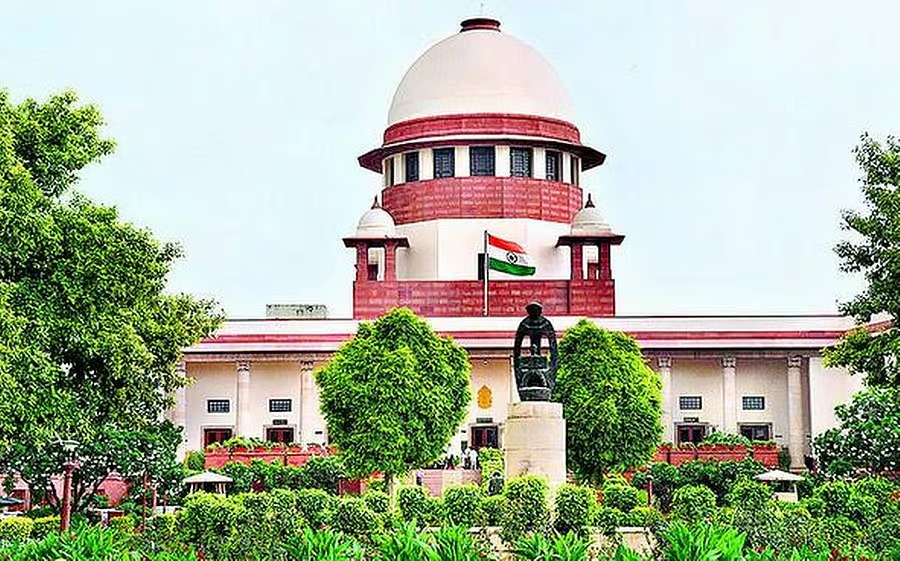Sudershan Kumar Misra, J.@mdashThis petition u/s 482 Cr.P.C. seeks quashing of FIR No.306/2012 registered u/s 336 and 338 of the IPC at police station Samai Pur Badli on 30.08.2012, has been jointly moved by Head Constable Anil Kumar and Sh. Arun Kumar, petitioner No.2 herein; on the ground that the matter has been amicably settled.
2. Issue notice.
The Additional Public Prosecutor for the State accepts notice. It is stated that the aforesaid FIR came to be filed as a result of firing by the first petitioner, Head Constable Anil Kumar from his licensed revolver during the course of what he has described as his official duty. It is stated that Head Constable Anil Kumar was proceeding to apprehend the second petitioner on 30.08.2012 in a matter relating to contraband liquor and when a scuffle broke out with a number of people who had gathered at the spot and also began to assault the Head Constable; and there was also an attempt to snatch his service revolver. It was during this scuffle that the shot came to be fired which injured the second petitioner Arun Kumar in the arm.
3. The second petitioner Arun Kumar, who is present in Court, states that he has no grievance in this regard and does not wish to press the matter any further. At the same time, counsel for the State, on instructions, submits that it appears that there was a scuffle between the Head Constable Anil Kumar and other persons present at the spot, who appeared to be sympathizing with the second petitioner Sh. Arun Kumar, whom the Head Constable Anil Kumar was attempting to apprehend, and as a result of which, his uniform was also torn; and in the process, firing occurred; he submits that this does not appear to be an instance of any rash or negligent act on the part of the first petitioner Head Constable Anil Kumar, against whom the aforesaid FIR has been registered; and under the circumstances, no useful purpose will be served in continuing with the these proceedings.
4. Looking to the decisions of the Supreme Court in
"29. In view of the aforesaid discussion, we sum up and lay down the following principles by which the High Court would be guided in giving adequate treatment to the settlement between the parties and exercising its power u/s 482 of the Code while accepting the settlement and quashing the proceedings or refusing to accept the settlement with direction to continue with the criminal proceedings:
29.1 Power conferred u/s 482 of the Code is to be distinguished from the power which lies in the Court to compound the offences u/s 320 of the Code. No doubt, u/s 482 of the Code, the High Court has inherent power to quash the criminal proceedings even in those cases which are not compoundable, where the parties have settled the matter between themselves. However, this power is to be exercised sparingly and with caution.
29.2 When the parties have reached the settlement and on that basis petition for quashing the criminal proceedings is filed, the guiding factor in such cases would be to secure:
(i) ends of justice, or
(ii) to prevent abuse of the process of any Court.
While exercising the power the High Court is to form an opinion on either of the aforesaid two objectives.
29.3 Such a power is not be exercised in those prosecutions which involve heinous and serious offences of mental depravity or offences like murder, rape, dacoity, etc. Such offences are not private in nature and have a serious impact on society. Similarly, for offences alleged to have been committed under special statute like the Prevention of Corruption Act or the offences committed by Public Servants while working in that capacity are not to be quashed merely on the basis of compromise between the victim and the offender.
29.4 On the other hand, those criminal cases having overwhelmingly and pre-dominantly civil character, particularly those arising out of commercial transactions or arising out of matrimonial relationship or family disputes should be quashed when the parties have resolved their entire disputes among themselves.
29.5 While exercising its powers, the High Court is to examine as to whether the possibility of conviction is remote and bleak and continuation of criminal cases would put the accused to great oppression and prejudice and extreme injustice would be caused to him by not quashing the criminal cases.
29.6 Offences u/s 307 Indian Penal Code would fall in the category of heinous and serious offences and therefore is to be generally treated as crime against the society and not against the individual alone. However, the High Court would not rest its decision merely because there is a mention of Section 307 Indian Penal Code in the FIR or the charge is framed under this provision. It would be open to the High Court to examine as to whether incorporation of Section 307 Indian Penal Code is there for the sake of it or the prosecution has collected sufficient evidence, which if proved, would lead to proving the charge u/s 307 Indian Penal Code. For this purpose, it would be open to the High Court to go by the nature of injury sustained, whether such injury is inflicted on the vital/delegate parts of the body, nature of weapons used etc. Medical report in respect of injuries suffered by the victim can generally be the guiding factor. On the basis of this prima facie analysis, the High Court can examine as to whether there is a strong possibility of conviction or the chances of conviction are remote and bleak. In the former case it can refuse to accept the settlement and quash the criminal proceedings whereas in the later case it would be permissible for the High Court to accept the plea compounding the offence based on complete settlement between the parties. At this stage, the Court can also be swayed by the fact that the settlement between the parties is going to result in harmony between them which may improve their future relationship.
29.7 While deciding whether to exercise its power u/s 482 of the Code or not, timings of settlement play a crucial role. Those cases where the settlement is arrived at immediately after the alleged commission of offence and the matter is still under investigation, the High Court may be liberal in accepting the settlement to quash the criminal proceedings/investigation. It is because of the reason that at this stage the investigation is still on and even the charge sheet has not been filed. Likewise, those cases where the charge is framed but the evidence is yet to start or the evidence is still at infancy stage, the High Court can show benevolence in exercising its powers favourably, but after prima facie assessment of the circumstances/material mentioned above. On the other hand, where the prosecution evidence is almost complete or after the conclusion of the evidence the matter is at the stage of argument, normally the High Court should refrain from exercising its power u/s 482 of the Code, as in such cases the trial court would be in a position to decide the case finally on merits and to come a conclusion as to whether the offence u/s 307 Indian Penal Code is committed or not. Similarly, in those cases where the conviction is already recorded by the trial court and the matter is at the appellate stage before the High Court, mere compromise between the parties would not be a ground to accept the same resulting in acquittal of the offender who has already been convicted by the trial court. Here charge is proved u/s 307 Indian Penal Code and conviction is already recorded of a heinous crime and, therefore, there is no question of sparing a convict found guilty of such a crime."
And the judgment of this Court in Basara and Ors. v. State and Anr. in Crl. M.C. No. 6621-24/2006 decided on 3rd September, 2007, wherein it was, inter alia, held as under:-
"14. .......Peace has been brought in the locality with the intervention of the well wishers of the locality. When there is peace in locality, there will be peace in the town. When there is peace in town, there will be peace in city. When there is peace in city, there will be peace in State. When there is peace in State, there will be peace in country.....
15. The petition is according allowed. FIR No.4/2005 registered against the petitioners u/s 307 read with Section 34 IPC with Police station Samay Pur Badli is quashed and all consequent proceedings pursuant thereto are also ordered to be dropped."
I am of the considered opinion that this case presents certain peculiar circumstances, and looking at the totality of these circumstances, the matter deserves to be given a quietus as no useful purpose will be served in continuing with the proceedings where the injured himself is not interested in supporting the prosecution.
5. Consequently, the petition is allowed, and FIR No.306/2012 registered u/s 336 and 338 of the IPC at police station Samai Pur Badli, and all proceedings emanating therefrom, are hereby quashed.
6. The petition, Crl.M.A. No.12519/2014, is disposed off.

